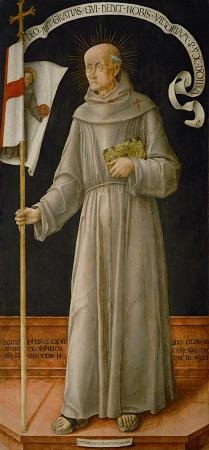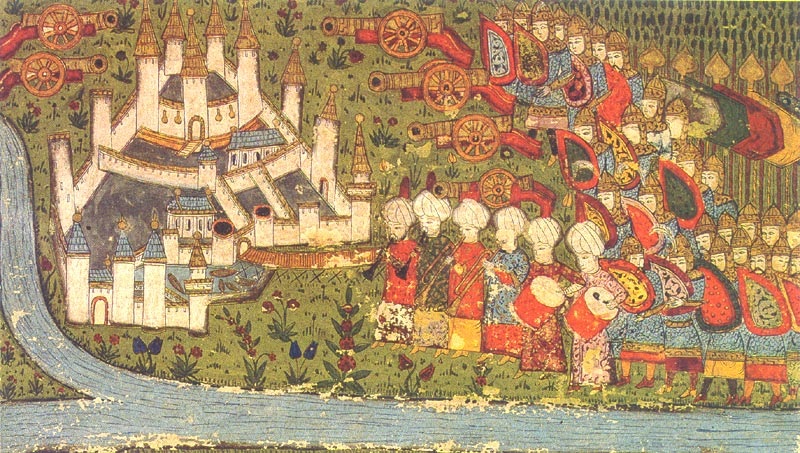
He devoted himself without ceasing to the preaching of the Word of God, in the which work he travelled throughout nearly all of Italy, and by the power of eloquence and of miracles not a few, he recalled souls almost countless into the path of salvation. Martin V appointed him Iniquisitor to stamp out the sect of the Fraticelli. Nicholas V appointed him Inquisitor-General in Italy against Judaism and Mohammedanism, and he brought many such misbelievers to believe in Christ. He did much good work in the affairs of the Eastern Church, and at the Council of Florence, wherein he shone like a sun, he brought back the Armenians to the Catholic Church. The same Pope Nicholas V, at the request of the Emperor Frederick III, sent him into Germany as Nuncio of the Apostolic See, in order that he might bring back the heretics to the Catholic faith and the minds of the princes to peace and agreement. He did a wonderful work for God's glory during the six years that he laboured in Germany and other countries, and by his teaching of the truth and the striking evidence of his miracles brought back to the bosom of the Church almost countless numbers of Hussites, Adamites, Taborites, and Jews.
It was mainly at the entreaty of John that Callistus III proclaimed a Crusade, and John hastened about through Pannonia and other provinces, where by his words and his letters he so roused the minds of princes to that holy war, that in a short while seventy thousand Christian soldiers were enrolled. It was mainly through his advice and by his power that victory was gained at Belgrade, when one hundred and twenty thousand Turks were either slain or put to flight. The news of this victory reached Rome upon the sixth day of August, and Pope Callistus thereupon consecrated that day for ever to the solemn commemoration of the Transfiguration of the Lord Christ. As John lay sick unto death at Illak, many princes came to see him, and he exhorted them to protect religion. He gave up his soul in holiness to God, in the year of salvation 1456. God confirmed his glory by many miracles after his death, and when these had been duly proved Alexander VIII enrolled his name with those of the saints in the year 1690, and two hundred years after his canonization Leo XIII extended his Office and Mass to the whole Church.





